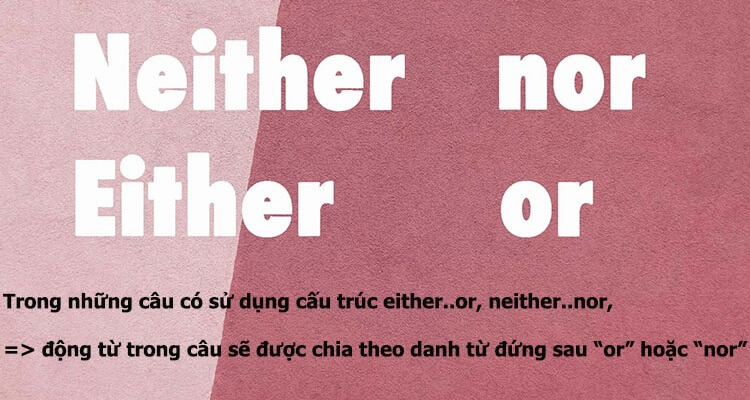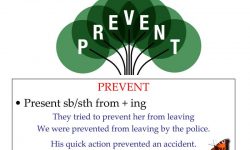Nguyên tắc cơ bản trong chia động từ trong tiếng Anh là phụ thuộc vào chủ ngữ và thì được sử dụng. Chủ ngữ số nhiều thì chia động từ số nhiều, chủ ngữ số ít thì chia động từ số ít. Nhưng, vẫn có những ngoại lệ mà Bạn phải học thuộc, vậy nên tailieuielts.com muốn chia sẻ với các bạn chủ đề Sự hòa hợp giữa chủ ngữ và động từ cùng 25 nguyên tắc chia động từ cực đỉnh. Hãy cùng theo dõi bài viết nhé!

Nội dung chính
- 1 A. Thế nào là sự hòa hợp giữa chủ ngữ và động từ
- 2 B. 25 quy tắc về sự hòa hợp giữa chủ ngữ và động từ
- 2.1 1. Nếu chủ ngữ là một danh từ hoặc đại từ số ít thì chia động từ theo hình thức số ít.
- 2.2 2. Nếu chủ ngữ là một danh từ hoặc đại từ số nhiều thì động từ được chia theo hình thức số nhiều.
- 2.3 3. Nếu chủ ngữ là một V-ING thì động từ sẽ chia theo hình thức số ít.
- 2.4 4. Khi chủ ngữ được nối bởi liên từ “OR” hoặc “NOR” thì Bạn chia động từ theo chủ ngữ gần nhất với động từ.
- 2.5 5. Nếu chủ ngữ sử dụng cấu trúc “EITHER …. OR” hoặc “NEITHER …NOR” thì chia động từ theo chủ ngữ gần nhất.
- 2.6 6. Khi chủ ngữ là cụm EITHER hoặc NEITHER đi với OF thì động từ luôn chia theo hình thức số ít.
- 2.7 7. Nếu chủ ngữ là cấu trúc THE NUMBER OF + N thì sẽ chia động từ theo hình thức số ít.
- 2.8 8. Khi gặp cấu trúc A NUMBER OF + N thì Bạn sẽ chia động từ theo hình thức số nhiều.
- 2.9 9. Khi chủ ngữ được nối với nhau bởi các liên từ: as long as, as well as, with, together with,… thì động từ chia theo chủ ngữ thứ nhất.
- 2.10 10. Chủ ngữ gồm nhiều chủ thể khác nhau và được nối bởi liên từ “AND” thì Bạn chia động từ chia theo hình thức số nhiều.
- 2.11 11. Chủ ngữ bắt đầu bằng một đại từ bất định như each, each of, everyone, everybody, everything, someone, somebody, something, every + N thì động từ luôn chia theo chủ ngữ số ít.
- 2.12 12. Khi chủ ngữ sử dụng cấu trúc MANY + N số nhiều thì chia động từ theo hình thức số nhiều.
- 2.13 13. Khi chủ ngữ bắt đầu với cấu trúc MANY + A + N số ít thì động từ sẽ được chia theo hình thức số ít.
- 2.14 14. Khi chủ ngữ bao gồm THE + ADJECTIVE để chỉ một tập thể thì chia động từ theo hình thức số nhiều.
- 2.15 15. Một số danh từ có “S” ở cuối nhưng sẽ chia động từ theo hình thức số ít.
- 2.16 16. Khi chủ ngữ là cụm từ chỉ tiền, khoảng cách, kích thước, đo lường và thời gian thì động từ chia theo hình thức số ít.
- 2.17 17. Đối với những chủ ngữ có chứa phân số, phần trăm thì ta chia động từ theo danh từ đứng sau “OF”.
- 2.18 18. Danh từ đi sau các cụm từ MAJORITY OF, SOME OF, ALL OF, MOST OF
- 2.19 19. Nếu sau “NO” hoặc “NONE OF” là một danh từ số ít hoặc không đếm được thì chia động từ theo hình thức số ít
- 2.20 20. Nếu sau “NO” hoặc “NONE OF” là một danh từ đếm được số nhiều thì chia động từ theo sau theo hình thức số nhiều.
- 2.21 21. Khi chủ ngữ là các danh từ như: pants (quần dài ), trousers (quần), glasses (gương đeo mắt), shorts (quần ngắn), shoes, scissors (cái kéo), pliers (cái kềm), tongs (cái kẹp) thì động từ chia động từ ở số nhiều
- 2.22 22. Khi hai danh từ nối với nhau bằng OF thì chia động từ theo danh từ phía trước.
- 2.23 23. Khi chủ ngữ là tựa đề phim ảnh, âm nhạc,… thì động từ chia theo hình thức số ít.
- 2.24 24. Khi chủ ngữ là các từ như: family, staff, team, group, congress, crowd, committee
- 2.25 25. Nếu sử dụng chủ ngữ giả “IT” thì động từ sẽ chia theo chủ ngữ chính, và thường là số ít.
- 3 C. BÀI TẬP
A. Thế nào là sự hòa hợp giữa chủ ngữ và động từ
Rất đơn giản thôi, sự hòa hợp giữa chủ ngữ và động từ là cách động từ (V) thay đổi tùy theo chủ ngữ (S) ở dạng số nhiều hay số ít hay dạng không đếm được.
Ví dụ:
- My cat is white.
Chú mèo nhà tôi màu trắng.
Động từ To be được chia theo chủ ngữ số ít nên là “is”
- My students want to have a break.
Các học sinh của tôi muốn có giờ ra chơi.
Động từ To want được chia theo chủ ngữ số nhiều nên là “want”
- The water is clean.
Nước sạch đó.
Động từ To be được chia theo chủ ngữ “water” là danh từ không đếm được. Danh từ không đếm được có động từ chia giống danh từ số ít.
>>> Xem thêm:
- Các dạng của Động từ trong tiếng Anh – Bài tập có đáp án chi tiết
- Tất tần tật về động từ To be trong tiếng Anh
- Tất tần tật về Động từ khiếm khuyết trong tiếng Anh
B. 25 quy tắc về sự hòa hợp giữa chủ ngữ và động từ
1. Nếu chủ ngữ là một danh từ hoặc đại từ số ít thì chia động từ theo hình thức số ít.
S(singular) + V(singular)
Ví dụ:
- My cat is lying on the grass.
- He is a teacher.
- Thanos wants to rule the world.
- England is a country that is part of the United Kingdom.
- Infinity War achieves the seemingly impossible feat of melding together a huge cast of characters.
Xem thêm bài viết sau:
- Từ vựng tiếng Anh chủ đề Chính trị
- Từ vựng tiếng Anh theo chủ đề Món ăn
- Top 14 cách học Từ vựng tiếng Anh hiệu quả và dễ nhớ nhất
2. Nếu chủ ngữ là một danh từ hoặc đại từ số nhiều thì động từ được chia theo hình thức số nhiều.
S(plural) + V(plural)
Ví dụ:
- They often work very hard.
- We are teachers.
- The animals gather closely together for warmth.
- Teachers work with students to find out specific need.
- Asian countries cooperate with each other.
3. Nếu chủ ngữ là một V-ING thì động từ sẽ chia theo hình thức số ít.
V-ING + V(singular)
Ví dụ:
- Playing football is not easy with me.
- Jogging everyday is good for your health.
- Computing saves a lot of time.
- Studying online is very convenient.
- Using online practices helps students who don’t have books.
- Working from home allows a person to work in comfort.
>>> Tham khảo:
- Tổng hợp cách dùng To + V và V-ing trong tiếng Anh
- Tổng hợp những động từ bất quy tắc tiếng Anh thông dụng nhất
4. Khi chủ ngữ được nối bởi liên từ “OR” hoặc “NOR” thì Bạn chia động từ theo chủ ngữ gần nhất với động từ.
S1 OR/NOR S2 + V(s2)
Ví dụ:
- It is you or I who am to go.
- Neither John nor his friends have seen this movie before.
- Our happiness or our sorrow is largely due to our actions.
- My parents or my brother is staying at home now.
- You or I am the winner.
5. Nếu chủ ngữ sử dụng cấu trúc “EITHER …. OR” hoặc “NEITHER …NOR” thì chia động từ theo chủ ngữ gần nhất.

EITHER S1 OR S2 + V(s2)
Ví dụ:
- Either my parents or I am going to the supermarket to buy food for lunch.
- Either he or I have to leave.
- Either I or he has to leave.
- Neither John nor his friends have seen this movie before.
- Neither I nor you are right
6. Khi chủ ngữ là cụm EITHER hoặc NEITHER đi với OF thì động từ luôn chia theo hình thức số ít.
EITHER/NEITHER OF + N + V(singular)
Ví dụ:
- Neither of them is available to speak now.
- Either of us is capable of doing the job.
- Neither of them works in this company.
- Either of my parents is staying at home now.
- Either of students has left the door unlocked
7. Nếu chủ ngữ là cấu trúc THE NUMBER OF + N thì sẽ chia động từ theo hình thức số ít.
Ví dụ:
- The number of addicted people has increased recently.
- The number of bears decreases day by day.
- The number of days in a week is 7.
- The number of people, who have lost their job, is quite big.
- The number of accidents has gone down steadily since the speed limit was imposed.
8. Khi gặp cấu trúc A NUMBER OF + N thì Bạn sẽ chia động từ theo hình thức số nhiều.
A NUMBER OF + N + V (plural)
Ví dụ:
- A number of good students in my class have decreased this year.
- A number of hours have passed
- A number of people have lost their job.
- A number of books in this library are really big.
- A number of special conditions is necessary for the formation of a geyser.
9. Khi chủ ngữ được nối với nhau bởi các liên từ: as long as, as well as, with, together with,… thì động từ chia theo chủ ngữ thứ nhất.
S1 AS LONG AS/WITH S2 + V(s1)
Ví dụ:
- The old man with his dog passes my house every morning.
- Mr. Johnson as well as his assistants has arrived.
- Mr Robbins, accompanied by his wife and children, is leaving tonight.
- My father as well as the other people in my family is very friendly.
- Kim, as well as her parents is coming to the party.
10. Chủ ngữ gồm nhiều chủ thể khác nhau và được nối bởi liên từ “AND” thì Bạn chia động từ chia theo hình thức số nhiều.
S1 AND S2 + V(plural)
Ví dụ:
- Fire and water do not agree.
- Honor and glory are the rewards.
- John and I are going to college next autumn.
- Bread and butter is my favorite food.
- Lan and Tam are classmates in this school year.
- My father and my mother have lived happily together since they got married.
Lưu ý: Các trường hợp sau thì bắt buộc phải dùng số ít:
- Khi chúng cùng chỉ một người, 1 vật, 1 món ăn hay 1 khái niệm:
Ví dụ: Bread and meat is my favorite dish.
- Phép cộng thì dùng số ít:
Ví dụ: Two and three is five.
11. Chủ ngữ bắt đầu bằng một đại từ bất định như each, each of, everyone, everybody, everything, someone, somebody, something, every + N thì động từ luôn chia theo chủ ngữ số ít.
EACH/EVERY + N + V(singular)
EVERYONE/SOMETHING + V(singular)
Ví dụ:
- Each boy and each girl has their own story.
- Everyone in my class is very intelligent.
- Each of the boys has a bicycle.
- Someone has taken my pencil.
- Each person is allowed 20kg luggage.
- Everybody knows Tom.
12. Khi chủ ngữ sử dụng cấu trúc MANY + N số nhiều thì chia động từ theo hình thức số nhiều.
MANY + N(plular) + V(plular)
Ví dụ:
- Many students like playing games nowadays.
- Many animals face starvation and frostbite during the snowy season.
- Many vehicles are equipped with an air bag.
- Many countries around the world celebrate earth day
- Many movies now make more money from sales of DVDS than from the box office.
13. Khi chủ ngữ bắt đầu với cấu trúc MANY + A + N số ít thì động từ sẽ được chia theo hình thức số ít.
MANY + A + N(singular) + V(singular)
Ví dụ:
- Many a leader fallen due to pride.
- Many a student doesn’t want to study all day at school.
- Many a little makes a miracle.
- Many a letter has crossed.
- Many a good hanging prevents a bad marriage, and, for turning away, let summer bear it out.
14. Khi chủ ngữ bao gồm THE + ADJECTIVE để chỉ một tập thể thì chia động từ theo hình thức số nhiều.
THE + ADJECTIVE + V(plural)
Ví dụ:
- The deaf are the people who are not able to hear.
- Despite not having much money, The poor are still happy.
- The rich are not always happy.
- The poor get poorer, the rich get richer.
- The French like to eat well.
Đặc biệt, Khi đứng sau THE là danh từ people, police, army, children, cattle (gia súc) thì cũng dùng động từ ở số nhiều.
Ví dụ: The police have patrolled through the night to catch that murder.
15. Một số danh từ có “S” ở cuối nhưng sẽ chia động từ theo hình thức số ít.
- Môn học: physics (vật lý ), mathematics (toán), economics (kinh tế học), politics (chính trị học) …
- Môn thể thao: athletics (môn điền kinh), billiards (bi-da), checkers(cờ đam)
- Tên các căn bệnh: Measles (sởi), rickets (còi xương)….
- Các danh từ khác: news (tin tức), the United States,…..
Ví dụ:
- Physics is more difficult than chemistry.
- Gymnastics is my favorite sport.
- Maths is considered as a difficult subject with many students.
- The United States has new president.
16. Khi chủ ngữ là cụm từ chỉ tiền, khoảng cách, kích thước, đo lường và thời gian thì động từ chia theo hình thức số ít.
MONEY/TIME/DISTANCE/WEIGHT + V(singular)
Ví dụ:
- Five dollars to buy this shirt is very cheap.
- 8 hours of sleeping is enough.
- Money makes the world go around.
- Time flies when you’re having fun
- Five kilometers is not far.
- Three years are not a long time.
17. Đối với những chủ ngữ có chứa phân số, phần trăm thì ta chia động từ theo danh từ đứng sau “OF”.
% + OF + S(singular + uncountable) + V(singular)
% + OF + S(plural + countable) + V(plural)
Ví dụ:
- Two third of students in my class are girls.
- Two third of water in this bottle is drunk by Peter.
- Fifty percent of the pie has disappeared.
- One-third of the city is unemployed.
- One-third of the people are unemployed.
18. Danh từ đi sau các cụm từ MAJORITY OF, SOME OF, ALL OF, MOST OF
Nếu danh từ đi sau các cụm từ MAJORITY OF, SOME OF, ALL OF, MOST OF là số ít không đếm được sẽ chia động từ số ít và ngược lại nếu số nhiều đếm được thì chia động từ số nhiều.
MAJORITY OF/SOME OF/ALL OF + S(singular + uncountable) + V (singular)
MAJORITY OF/SOME OF/ALL OF + S(plural + countable) + V (plural)
Ví dụ:
- Some of my friends are very good at English.
- Some of the information he told us was not reliable.
- Some of the students are late for class.
- Most of the water is polluted.
- All of the books are interesting.
19. Nếu sau “NO” hoặc “NONE OF” là một danh từ số ít hoặc không đếm được thì chia động từ theo hình thức số ít
NO/NONE OF + S(singular+uncountable) + V(singular)
Ví dụ:
- None of meat was cooked in this special day.
- No further information is provided for you unless you are a VIP.
- No student leaves the room.
- No example is relevant to this case.
- None of the counterfeit money has been found.
20. Nếu sau “NO” hoặc “NONE OF” là một danh từ đếm được số nhiều thì chia động từ theo sau theo hình thức số nhiều.
NO/NONE OF S(plural+countable) + V(plural)
Ví dụ:
- No people are allowed to swim in this lake
- No people think alike.
- None of the books are interesting
- None of my friends know it
- None of us speak French
21. Khi chủ ngữ là các danh từ như: pants (quần dài ), trousers (quần), glasses (gương đeo mắt), shorts (quần ngắn), shoes, scissors (cái kéo), pliers (cái kềm), tongs (cái kẹp) thì động từ chia động từ ở số nhiều
Ví dụ:
- The shoes are on the shelf.
- My pants are ripped.
Lưu ý: Khi có từ : “A pair of ” đi trước các danh từ này thì chia động từ ở số ít.
A pair of shoes + Verb (singular)
A pair of trousers + Verb (singular)
A pair of glasses + Verb (singular)
Ví dụ: A pair of shoes is on the shelf.
22. Khi hai danh từ nối với nhau bằng OF thì chia động từ theo danh từ phía trước.
Ví dụ:
- The effects of stress are very sirious.
- The list of items is on the desk.
- The experiences of work during study is common for around half of all students.
- The advertising of credence goods contains both informational and persuasive advertising.
- The advantage of living in the city is the range of clothes shops.
Xem thêm những bài viết liên quan:
- Đánh giá Trung tâm Ôn thi IELTS 1 kèm 1 ở Tân Bình TPHCM
- 10 Trung tâm luyện thi IELTS cấp tốc ở Quận 10 TPHCM
- Top 11 trung tâm tiếng Anh dạy IELTS tốt nhất tại TP.HCM
23. Khi chủ ngữ là tựa đề phim ảnh, âm nhạc,… thì động từ chia theo hình thức số ít.
Ví dụ:
- Better Days is a 2019 Chinese romantic crime coming of age film directed by Derek Tsang and starring Zhou Dongyu and Jackson Yee.
- Gone with the Wind is a sweeping romantic story about the American Civil War from the point of view of the Confederacy.
- “Heal the World” is a song recorded by American recording artist Michael Jackson.
- Tom and Jerry” is my favorite cartoon.

24. Khi chủ ngữ là các từ như: family, staff, team, group, congress, crowd, committee
- Hành động của từng thành viên thì chia động từ ở số nhiều.
Ví dụ:
- The family are having breakfast.
- The crowd are becoming excited.
- The staff were upset not to have been informed.
- Tính chất của tập thể đó như một đơn vị thì chia động từ ở số ít.
Ví dụ:
- My family is very conservative.
- The congress has laws to protect wildlife from commercial trade and overhunting.
- His team gets the best assignments case study.
25. Nếu sử dụng chủ ngữ giả “IT” thì động từ sẽ chia theo chủ ngữ chính, và thường là số ít.
Ví dụ:
- It is her dog that often bites people.
- It is the face of pregnancy that starts from the week 13 to 27.
- It’s disgusting that he turns his radio too loud.
C. BÀI TẬP
Exercise 1: Chọn đáp án đúng nhất để điền vào chỗ trống ở mỗi câu sau đây.
1. Each student………. answered the first three questions.
a. has
b. have
c. have to
d. must
2. Either John or his wife ………breakfast each morning.
a. make
b. is making
c. makes
d. made
3. Everybody who ………. a fever must go home at once.
a. has
b. have
c. is having d. are having
4. Five dollars ………all I have on me.
a. are
b. is
c. will be
d. have
5. John, along with twenty friends, ………. planning a party.
a. are
b. is
c. has been
d. have been
6. Mathematics……….. the science of quantity.
a. was
b. are
c. is
d. were
7. Measles………cured without much difficulty nowadays.
a. is
b. are
c. will be
d. have
8. Neither Mary nor her brothers……a consent form for tomorrow’s field trip.
a. need
b. needs
c. is needing
d. has need
9. Peter, together with his uncle, ……………fishing.
a. have gone
b. has gone
c. go
d. goes
10. The army…………. eliminated this section of the training test.
a. has
b. is having
c. are
d. have
Đáp án: 1A – 2C – 3A – 4B – 5B – 6C – 7A – 8A – 9B – 10A
Exercise 2: Chia động từ để các câu dưới đây có nghĩa.
1. What we need most (be)________books.
2. The English (be) ________proud and independent people.
3. The United States (have) ________a population of 250 million.
4. There (be, not) ________any letters in the mail for you today.
5. Everyone in both cars (be) ________injured in the accident last night.
6. The books borrowed from the library (be) ________on my desk now.
7. The boy who won the two medals (be) ________ a friend of mine.
8. Bread and butter (be) ________our daily food.
9. The quality of the candies (be) ________poor.
10. Gold, as well as platinum, (have) ________recently risen in price.
Đáp án: 1. is – 2. are – 3. has – 4. aren’t – 5. was – 6. are – 7. is – 8. is – 9. is – 10. has
Exercise 3: Trong số những câu sau đây, có những câu chứa một lỗi sai và có những câu chính xác. Nếu câu đó đúng, bỏ qua, nếu câu đó sai, hãy tìm và sửa lỗi sai.
1. The president, surrounded by secret service agents, is trying to make his way to the podium.
2. The buildings is destroyed during the fire are being rebuilt at the taxpayers’ expense.
3. 20 percent of the forest has been destroyed lately.
4. The witnesses saw that most of the fire in the hills was extinguished.
5. Some of the animals from the zoo was released into the animals preserve.
6. All of the students in the class taught by Professor Roberts is required to turn in their term papers next Monday.
7. Half of the food that we are serving to the guests is still in the refrigerator.
8. We believe that some of the employees is going to get promoted soon.
9. The people in the apartment next to mine are giving a party this evening.
10. Each of the doctors in the building need to have a separate reception area.
Đáp án:
1. đúng
2. is destroyed => destroyed
3. đúng
4. đúng
5. was => were
6. is => are
7. đúng
8. is => are
9. đúng
10. need => needs
Trên đây tailieuielts.com đã giới thiệu đến các bạn những trường hợp chia động từ theo những loại chủ ngữ khác nhau, hy vọng bạn hiểu rõ hơn và luyện thi IELTS thật tốt. Những kiến thức này gọi là sự hòa hợp giữa chủ ngữ và động từ, các bạn hãy chú ý để sử dụng thật chính xác nhé! Và đừng quên theo dõi chuyên mục ngữ pháp để học tiếng Anh mỗi ngày nhé!










Bình luận